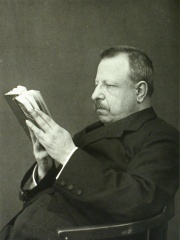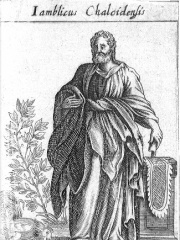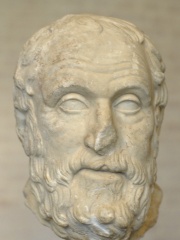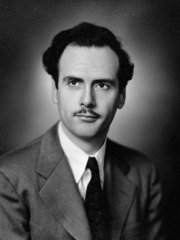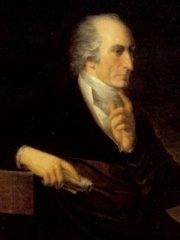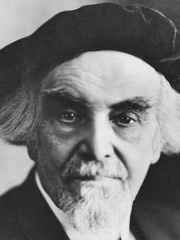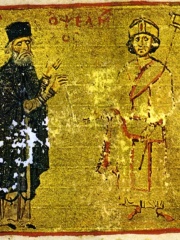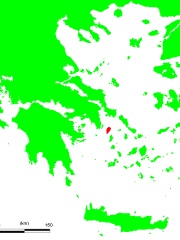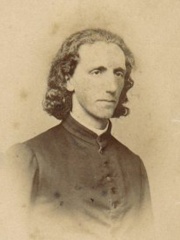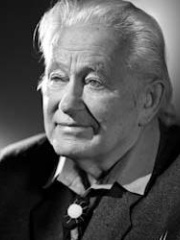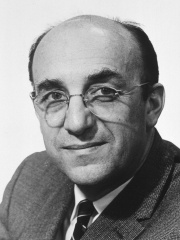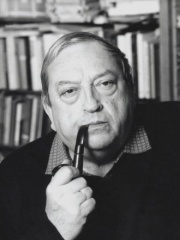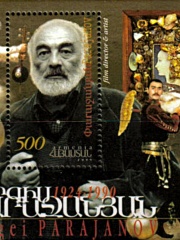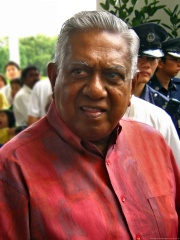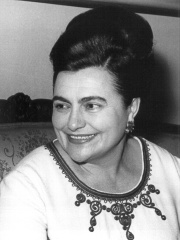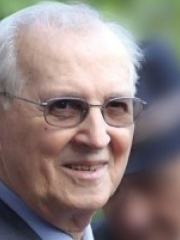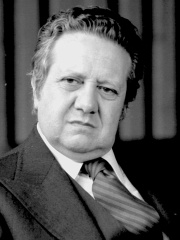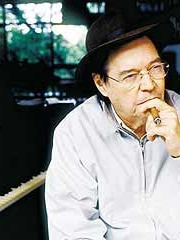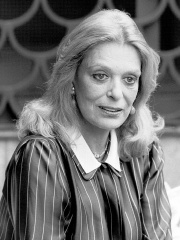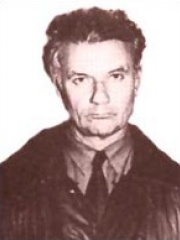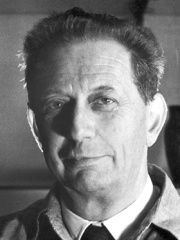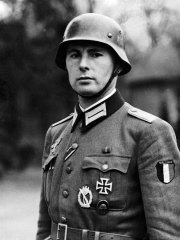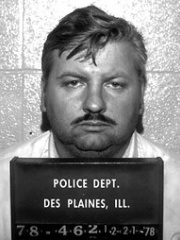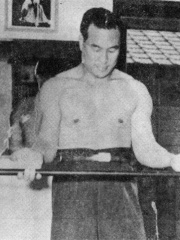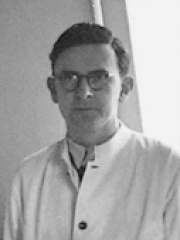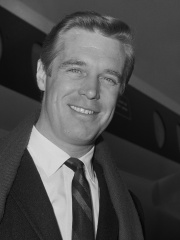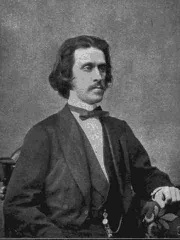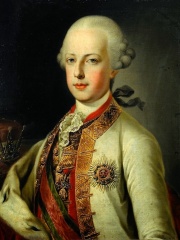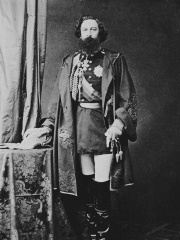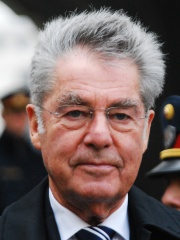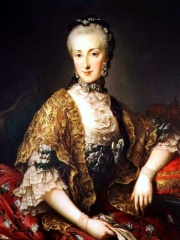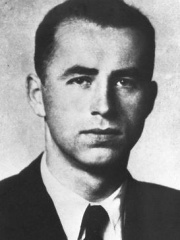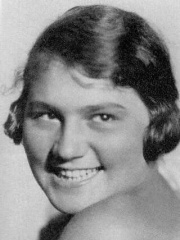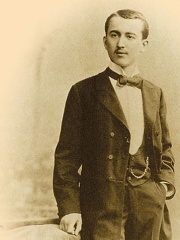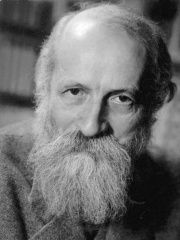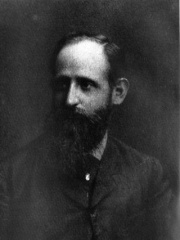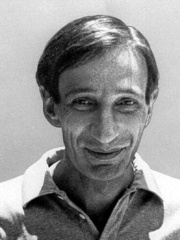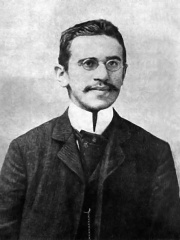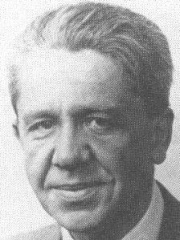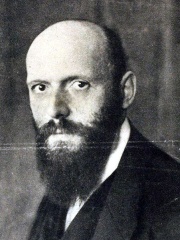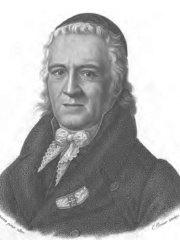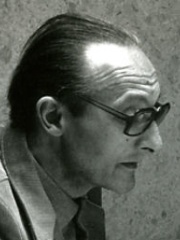PHILOSOPHER
Paul Feyerabend
1924 - 1994
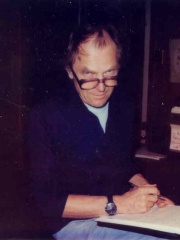
 Paul Feyerabend
Paul Feyerabend
Paul Karl Feyerabend (; FY-ur-ah-bent; German: [ˈfaɪɐˌʔaːbm̩t]; January 13, 1924 – February 11, 1994) was an Austrian philosopher best known for his work in the philosophy of science. He started his academic career as lecturer in the philosophy of science at the University of Bristol (1955–1958); afterward, he moved to the University of California, Berkeley, where he taught for three decades (1958–1989). At various points in his life, he held joint appointments at the University College London (1967–1970), the London School of Economics (1967), the FU Berlin (1968), Yale University (1969), the University of Auckland (1972, 1975), the University of Sussex (1974), and the ETH Zurich (1980–1990). He gave lectures and lecture series at the University of Minnesota (1958–1962), Stanford University (1967), the University of Kassel (1977), and the University of Trento (1992). Read more on Wikipedia
His biography is available in 45 different languages on Wikipedia (up from 43 in 2024). Paul Feyerabend is the 235th most popular philosopher (down from 225th in 2024), the 121st most popular biography from Austria (down from 112th in 2019) and the 4th most popular Austrian Philosopher.
Paul Feyerabend is most famous for his work in the philosophy of science. He is considered one of the most influential philosophers of science of the 20th century. He is best known for his "anything goes" approach to science, which he summed up in his slogan "anything goes".
Memorability Metrics
Page views of Paul Feyerabend by language
Among PHILOSOPHERS
Among philosophers, Paul Feyerabend ranks 235 out of 1,267. Before him are Benedetto Croce, Al-Ash'ari, Iamblichus, Carneades, Marshall McLuhan, and Friedrich Heinrich Jacobi. After him are Nikolai Berdyaev, Giorgio Agamben, Michael Psellos, Prodicus, Franz Brentano, and Al-Jahiz.
Most Popular Philosophers in Wikipedia
Go to all RankingsBenedetto Croce
1866 - 1952
HPI: 72.94
Rank: 229
Al-Ash'ari
873 - 936
HPI: 72.85
Rank: 230
Iamblichus
245 - 330
HPI: 72.85
Rank: 231
Carneades
214 BC - 129 BC
HPI: 72.79
Rank: 232
Marshall McLuhan
1911 - 1980
HPI: 72.78
Rank: 233
Friedrich Heinrich Jacobi
1743 - 1819
HPI: 72.77
Rank: 234
Paul Feyerabend
1924 - 1994
HPI: 72.75
Rank: 235
Nikolai Berdyaev
1874 - 1948
HPI: 72.65
Rank: 236
Giorgio Agamben
1942 - Present
HPI: 72.65
Rank: 237
Michael Psellos
1018 - 1078
HPI: 72.64
Rank: 238
Prodicus
460 BC - 380 BC
HPI: 72.63
Rank: 239
Franz Brentano
1838 - 1917
HPI: 72.56
Rank: 240
Al-Jahiz
775 - 868
HPI: 72.52
Rank: 241
Contemporaries
Among people born in 1924, Paul Feyerabend ranks 25. Before him are Sarah Vaughan, Georges Charpak, Lauren Bacall, Roger Guillemin, Jacques Le Goff, and Sergei Parajanov. After him are Lys Assia, S. R. Nathan, Billy Wright, Jovanka Broz, Ramiz Alia, and Mário Soares. Among people deceased in 1994, Paul Feyerabend ranks 27. Before him are Antônio Carlos Jobim, Melina Mercouri, Andrei Chikatilo, André Michel Lwoff, Léon Degrelle, and John Wayne Gacy. After him are Mas Oyama, Domenico Modugno, Billy Wright, Roland Ratzenberger, Niels Kaj Jerne, and George Peppard.
Others Born in 1924
Go to all RankingsSarah Vaughan
SINGER
1924 - 1990
HPI: 73.48
Rank: 19
Georges Charpak
PHYSICIST
1924 - 2010
HPI: 73.25
Rank: 20
Lauren Bacall
ACTOR
1924 - 2014
HPI: 73.22
Rank: 21
Roger Guillemin
BIOLOGIST
1924 - 2024
HPI: 72.93
Rank: 22
Jacques Le Goff
HISTORIAN
1924 - 2014
HPI: 72.92
Rank: 23
Sergei Parajanov
FILM DIRECTOR
1924 - 1990
HPI: 72.77
Rank: 24
Paul Feyerabend
PHILOSOPHER
1924 - 1994
HPI: 72.75
Rank: 25
Lys Assia
SINGER
1924 - 2018
HPI: 72.67
Rank: 26
S. R. Nathan
POLITICIAN
1924 - 2016
HPI: 72.59
Rank: 27
Billy Wright
SOCCER PLAYER
1924 - 1994
HPI: 72.03
Rank: 28
Jovanka Broz
POLITICIAN
1924 - 2013
HPI: 71.99
Rank: 29
Ramiz Alia
POLITICIAN
1924 - 2011
HPI: 71.80
Rank: 30
Mário Soares
POLITICIAN
1924 - 2017
HPI: 71.55
Rank: 31
Others Deceased in 1994
Go to all RankingsAntônio Carlos Jobim
MUSICIAN
1927 - 1994
HPI: 73.87
Rank: 21
Melina Mercouri
ACTOR
1920 - 1994
HPI: 73.80
Rank: 22
Andrei Chikatilo
EXTREMIST
1936 - 1994
HPI: 73.57
Rank: 23
André Michel Lwoff
BIOLOGIST
1902 - 1994
HPI: 73.22
Rank: 24
Léon Degrelle
POLITICIAN
1906 - 1994
HPI: 73.11
Rank: 25
John Wayne Gacy
EXTREMIST
1942 - 1994
HPI: 73.09
Rank: 26
Paul Feyerabend
PHILOSOPHER
1924 - 1994
HPI: 72.75
Rank: 27
Mas Oyama
MARTIAL ARTS
1923 - 1994
HPI: 72.71
Rank: 28
Domenico Modugno
SINGER
1928 - 1994
HPI: 72.09
Rank: 29
Billy Wright
SOCCER PLAYER
1924 - 1994
HPI: 72.03
Rank: 30
Roland Ratzenberger
RACING DRIVER
1960 - 1994
HPI: 71.76
Rank: 31
Niels Kaj Jerne
PHYSICIAN
1911 - 1994
HPI: 71.41
Rank: 32
George Peppard
ACTOR
1928 - 1994
HPI: 71.30
Rank: 33
In Austria
Among people born in Austria, Paul Feyerabend ranks 121 out of 1,424. Before him are Elisabeth of Austria, Queen of France (1554), Josef Strauss (1827), Ferdinand Karl, Archduke of Austria-Este (1754), Ferdinand II of Portugal (1816), Leopold, Duke of Lorraine (1679), and Heinz Fischer (1938). After him are Archduchess Maria Anna of Austria (1738), Ferdinand IV, King of the Romans (1633), Józef Poniatowski (1763), Alois Brunner (1912), Geli Raubal (1908), and Milutin Milanković (1879).
Others born in Austria
Go to all RankingsElisabeth of Austria, Queen of France
COMPANION
1554 - 1592
HPI: 73.37
Rank: 115
Josef Strauss
COMPOSER
1827 - 1870
HPI: 73.21
Rank: 116
Ferdinand Karl, Archduke of Austria-Este
POLITICIAN
1754 - 1806
HPI: 73.18
Rank: 117
Ferdinand II of Portugal
POLITICIAN
1816 - 1885
HPI: 73.07
Rank: 118
Leopold, Duke of Lorraine
POLITICIAN
1679 - 1729
HPI: 72.94
Rank: 119
Heinz Fischer
POLITICIAN
1938 - Present
HPI: 72.88
Rank: 120
Paul Feyerabend
PHILOSOPHER
1924 - 1994
HPI: 72.75
Rank: 121
Archduchess Maria Anna of Austria
POLITICIAN
1738 - 1789
HPI: 72.74
Rank: 122
Ferdinand IV, King of the Romans
POLITICIAN
1633 - 1654
HPI: 72.71
Rank: 123
Józef Poniatowski
MILITARY PERSONNEL
1763 - 1813
HPI: 72.70
Rank: 124
Alois Brunner
MILITARY PERSONNEL
1912 - 2010
HPI: 72.64
Rank: 125
Geli Raubal
CELEBRITY
1908 - 1931
HPI: 72.57
Rank: 126
Milutin Milanković
GEOLOGIST
1879 - 1958
HPI: 72.57
Rank: 127
Among PHILOSOPHERS In Austria
Among philosophers born in Austria, Paul Feyerabend ranks 4. Before him are Ludwig Wittgenstein (1889), Karl Popper (1902), and Martin Buber (1878). After him are Josef Breuer (1842), Ivan Illich (1926), Otto Weininger (1880), Alfred Schütz (1899), Otto Neurath (1882), Jean Améry (1912), Karl Leonhard Reinhold (1757), and André Gorz (1923).
Ludwig Wittgenstein
1889 - 1951
HPI: 83.27
Rank: 1
Karl Popper
1902 - 1994
HPI: 81.86
Rank: 2
Martin Buber
1878 - 1965
HPI: 76.75
Rank: 3
Paul Feyerabend
1924 - 1994
HPI: 72.75
Rank: 4
Josef Breuer
1842 - 1925
HPI: 72.48
Rank: 5
Ivan Illich
1926 - 2002
HPI: 71.51
Rank: 6
Otto Weininger
1880 - 1903
HPI: 70.72
Rank: 7
Alfred Schütz
1899 - 1959
HPI: 70.35
Rank: 8
Otto Neurath
1882 - 1945
HPI: 69.31
Rank: 9
Jean Améry
1912 - 1978
HPI: 65.87
Rank: 10
Karl Leonhard Reinhold
1757 - 1823
HPI: 65.45
Rank: 11
André Gorz
1923 - 2007
HPI: 64.16
Rank: 12
